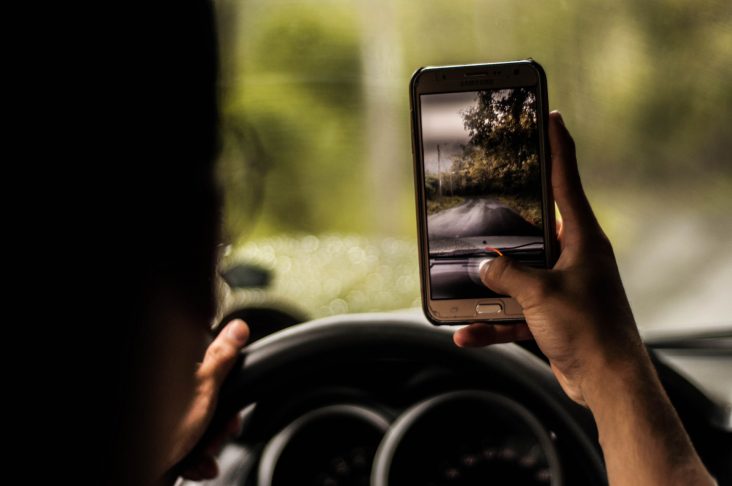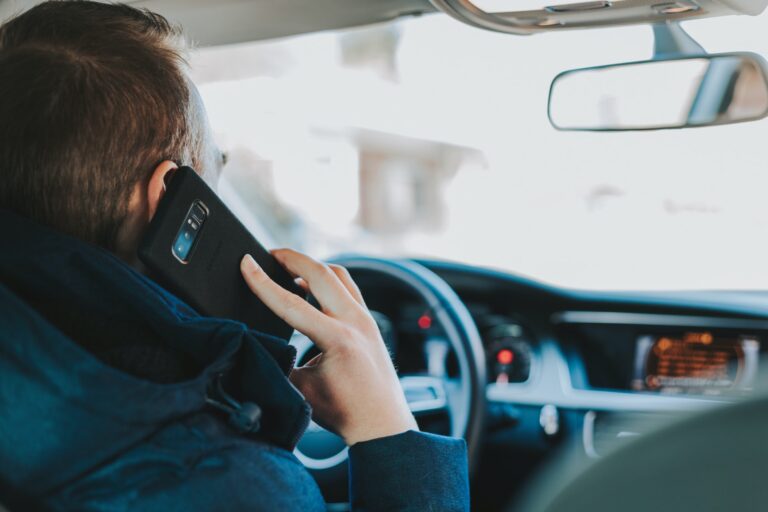What do you think will help reduce the risk of accidents besides the driving experience? Of course, only strict adherence to the Traffic Rules will reduce the risk of an accident to a minimum.
But, unfortunately, even if we are the most law-abiding drivers, we are still not able to insure ourselves against accidents. Do you know why? Because there will always be someone who will ignore driving safety and not comply with traffic rules.
For example, you have successfully passed your DMV permit test at Zutobi.com and are following the road rules. We are sure that even if you meticulously observe the speed limit, distance, rules for crossing intersections and other road sections, instructions from traffic lights and traffic controllers, follow the requirements of all road signs, do not ignore the markings, you still sometimes use your phone while driving. Unfortunately, even the most law-abiding drivers are guilty of this.
5 facts that will make you stop using your phone in the car

Did you know that most often young, inexperienced drivers use mobile phones while driving?
We’ve all known for a long time how distracting the phone is while driving. But, despite this, many people cannot refuse it while driving in the car. And even if you do not pick up your smartphone while driving, this does not mean that you are safe on the road. After all, a huge number of drivers use the phone while driving. Young novice drivers who have only recently acquired a license are especially dangerous. Indeed, in addition to the fact that they have no driving experience, they use mobile phones even more often than others while driving. As a result, this category of drivers has twice the risk of getting into an accident.
Even a glance at the phone screen when receiving a message will greatly distract you from the road
Studies have shown that if you are distracted by a text message while driving, you will, on average, lose control of the road by about 4.6 seconds. It would seem that this is an insignificant time. But in fact, this is a lot. The fact is that on the road milliseconds always decide everything. That is why, to improve your driving skills, in no case should you read and, of course, send messages from your mobile phone while you are driving a car. After all, a lot can happen on the road in 4.6 seconds. Especially if you are moving at a rather high speed.
Most often, drivers under the age of 20 get into an accident due to phones

Accident statistics show that 27 percent of young drivers (under the age of 20) get into serious accidents through their fault, as they simply were briefly distracted by the screen of their phone while driving.
According to the world statistics of road accidents, hundreds of thousands of people suffer from telephones in the car every year all over the world
Every year 458,000 drivers and pedestrians suffer from the telephone worldwide. Do you know why there are so many accidents due to phones? The thing is that, according to numerous studies, the mobile phone distracts the driver so much it reduces his concentration and reaction speed to the same level that is observed during mild intoxication. Naturally, with a decrease in reaction and attention when driving at speed, even insignificant milliseconds decide everything.
Reading and sending messages while driving distracts our brain
Alas, over millions of years of evolution, our brain has not learned to simultaneously process a large flow of information coming to the senses. While driving a car, our brain does a very difficult job, processing a huge flow of information that goes not only to our eyes but also to other senses. Unfortunately, if at this moment you are distracted by your phone, which received an SMS, or, even worse, decide to write a message to someone, our brain will automatically switch to processing information related to interacting with the gadget. As a result, the processes in our brain associated with driving a car will slow down significantly.

